Home
The Mediterranean Beekeepers Association is the first trade association which offers assistance, consultancy, technical and professional support from a local to an international level.
FED APIMED currently associates 24 members, among which there cooperatives and territorial associations of the following 12 countries:
Italy, Morocco, France, Tunisia, Algeria, Lebanon, Albania, Palestine, Iraq, Jordan, Egypt and Turkey.
To increase and improve the organizational level of beekeepers' associations and cooperatives.
To protect the typicalness and naturalness of their partners' production on national and foreign markets.
To sponsor and support every initiative for the development and the protection of beekeeping, not only as a production activity but also as an activity fundamental for the biodiversity defence.
To realize promotional initiatives of international significance to allow the most different forms of collaboration between individuals interested in bees and beekeeping.
Project funded by the European Union
scientific confirmations on the presence of Nosema ceranae also come from IRAQ.
As known, this pathogenic microorganism is suspected of being among those responsible for the strong and widespread dying of bees (CCD).
350 honey samples from 5 provinces were examined. The pathogen has been detected in samples from three provinces.
The study was conducted by Dr. Afrah Sabah and dr. Hayder Abd_al Abbas.
We thank the dr. Qasim Mudaffer, President of the Association of the Iraqi Beekeepers, for having wanted to inform us about this important, although worrying news.
Honeybee dept.-plant protection directorate-ministry of agriculture
This study was conducted to investigate the presence of Nosema ceranae disease on honeybees ( Apis mellifera ) in Iraq,The study was carried out in AL-rashidia beekeeping station in the northern of Baghdad .
350 samples of honeybees were collected from five Provinces of Iraq ( Baghdad , Diala , Alnajaf , Karbala and Babil ) , The results showed depending on the characteristics of the pathogen that the disease found in three Provinces ( Baghdad , Diala and Babil ) with incidence ranged between( 50-100)% .Genetic marker for the pathogen ,simple sequence repeat( SSR) was used to differentiation between Nosema ceranae and Nosema apis, primer pair product a band with( 218bp).Honey bees consider one of the most important beneficial insects and its importance comes through the production of honey , which is considered an important health food, in addition to that it is a good income for many beekeepers in the world . In addition to its honey production , it produces royal gel as well as bee wax which is a good resource of income too , and play an important role in pollinating plants(shamout,A.etal,2014).In the last years the beekeeper are expanded in Iraq due to the many facilitations which are given by plant protection directorate / ministry 0f agriculture to them.This expansion was accompanied by many emerge diseases that must be considered . One of these diseases is Nosema ceranae which is consider one of the most important modern disease .The disease is wide world and exists on all seasons because it can live in wide range of temperature.(Higes etal.,2010) . From total of (7 ) honey bees apaires , ( 350 ) samples of bees were tested in order to discover the disease ( Nosema Ceranae ) , the results showed that ( 4 ) honey bees aparies were infected , also the ratio of infection was between ( 50% to 100% ) , where as noted existing of spores of the disease by microscope , on other side no infection was found in other honeybees apaires , also has been noted that the spores of disease have elliptical shapes and have different sizes ranging between ( 2 – 2.5 ) micrometer width and ( 5.3 – 3.9 ) micrometer length.see Fig. 1,2
DNA was tested for samples which have previously diagnosed microscopilly (morphology and size of spores) that give positive results.For molecular test(PCR) specific primer for Nosema Ceranae (IDT) used. and after laboratory steps required show compliance completely. The two positive Nosema ceranae samples showed no intraspecific DNA sequence differences among the (218bp).

Dr. Afrah Sabah
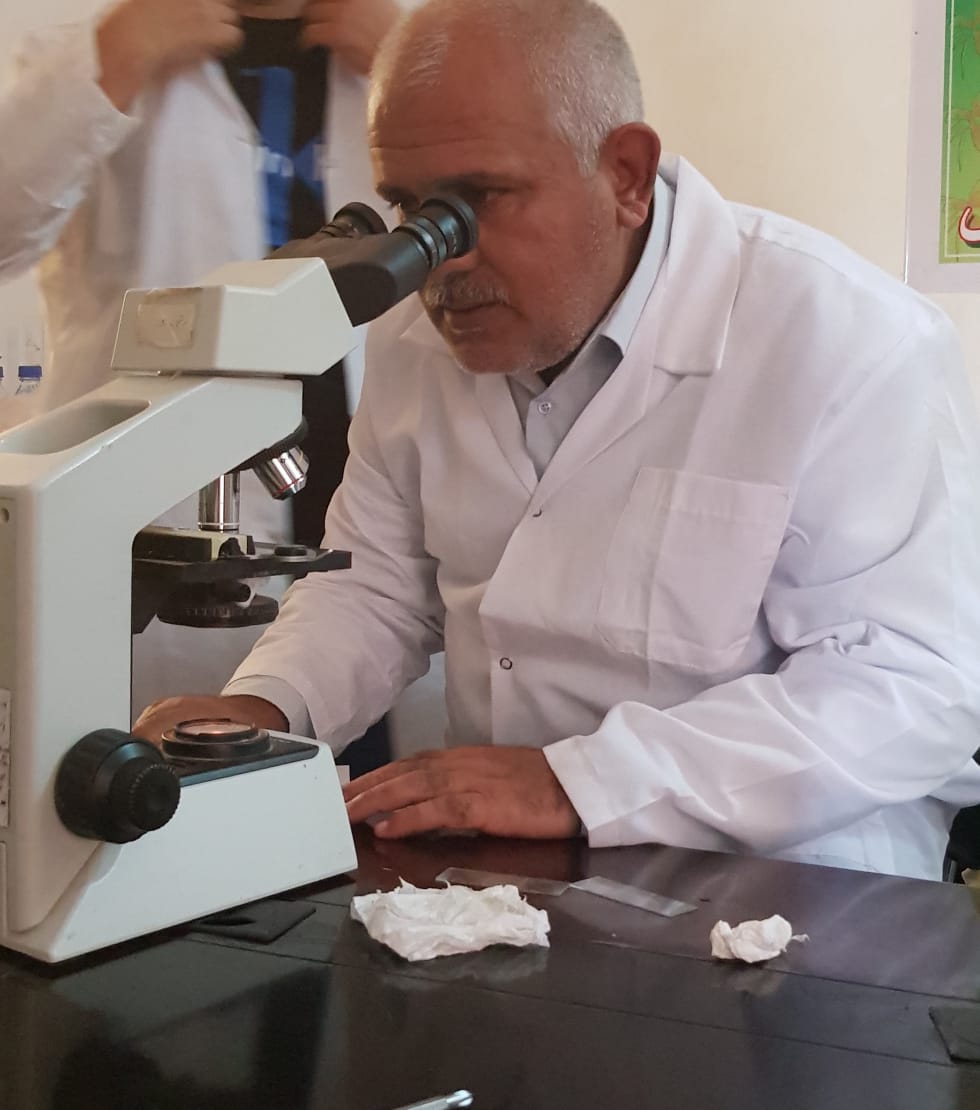
Dr. Hayder Abd_al Abbas

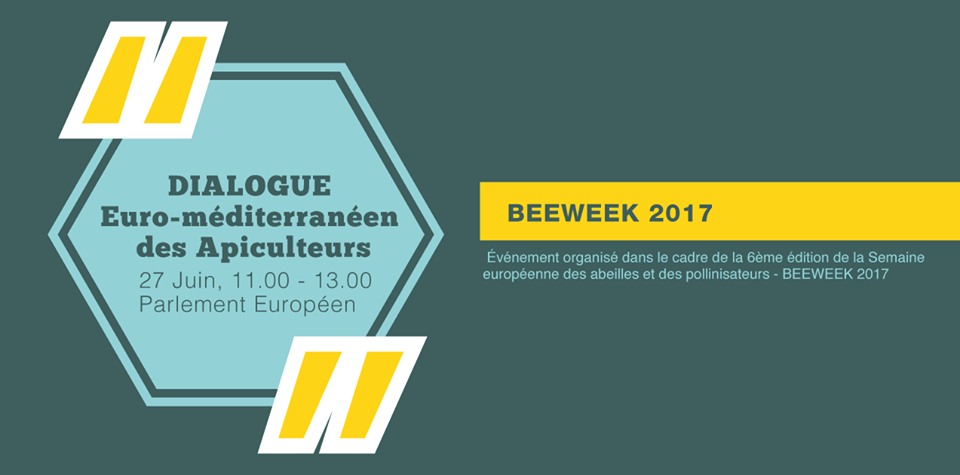
The quality of honey and the HACCP and traceability systems are the issues of the training realized by APIMED in the Tanger-Tétouan-Al Hoceima region in the North of Morocco. The training that took place from the 20th to the 22nd of May 2017 with the support of the local organization the Union of Cooperatives of Cercle-Tétouan was realized by the Vice-President and expert of APIMED Mr Massimo Carpinteri, and it implied as beneficiaries 20 beekeepers coming from all over the Country.
During the last day of training, the 22nd of May, an awareness and information session on the importance of bees for biodiversity took place. This activity, which implied some representatives of local authorities and farmers' organizations, is part of the CooBEEration Day (link: http://www.coobeerationcampaign.org/en/coobeeration-Day-2017/), promoted in the framework of the CooBEEration Campaign.
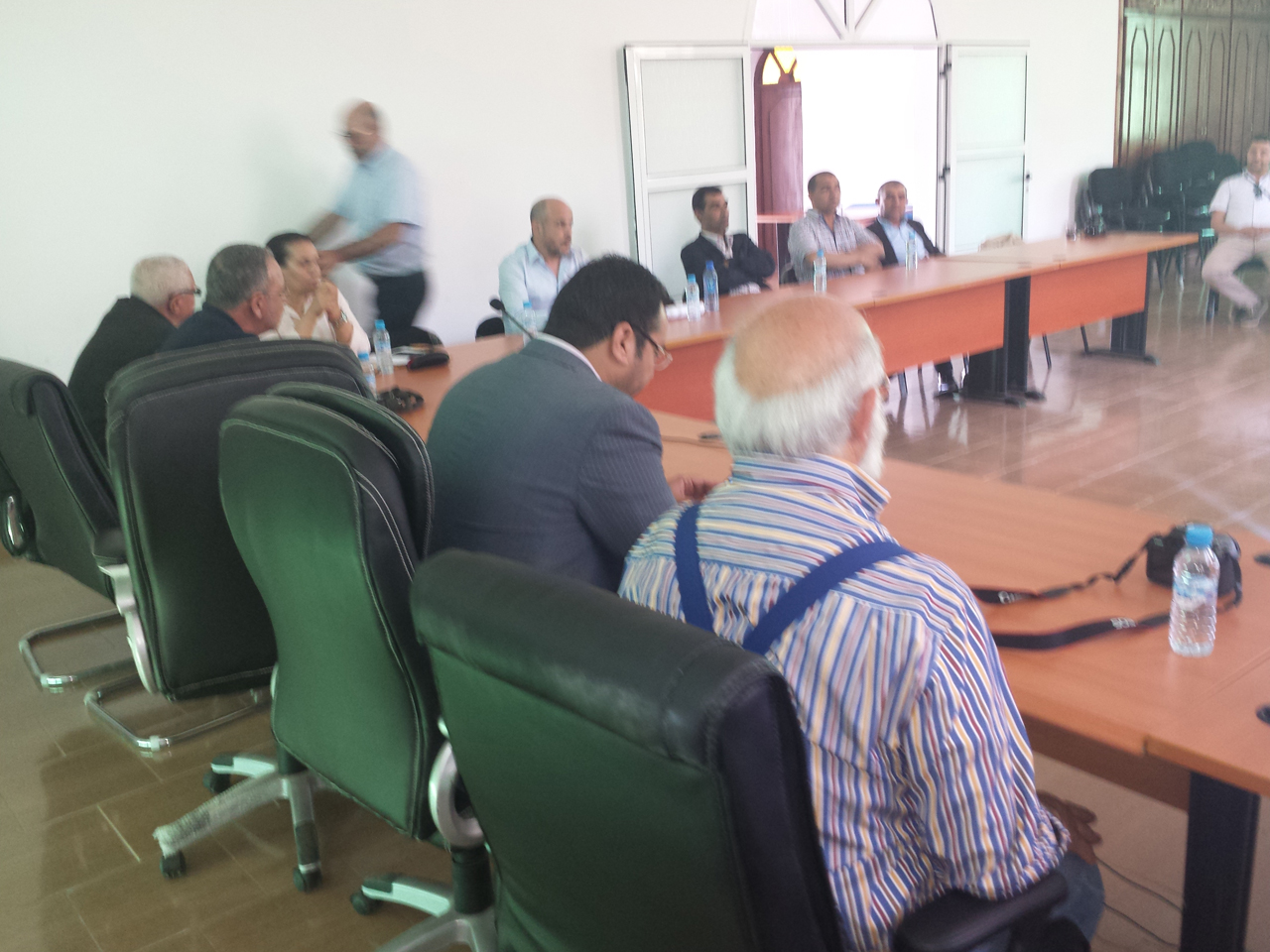
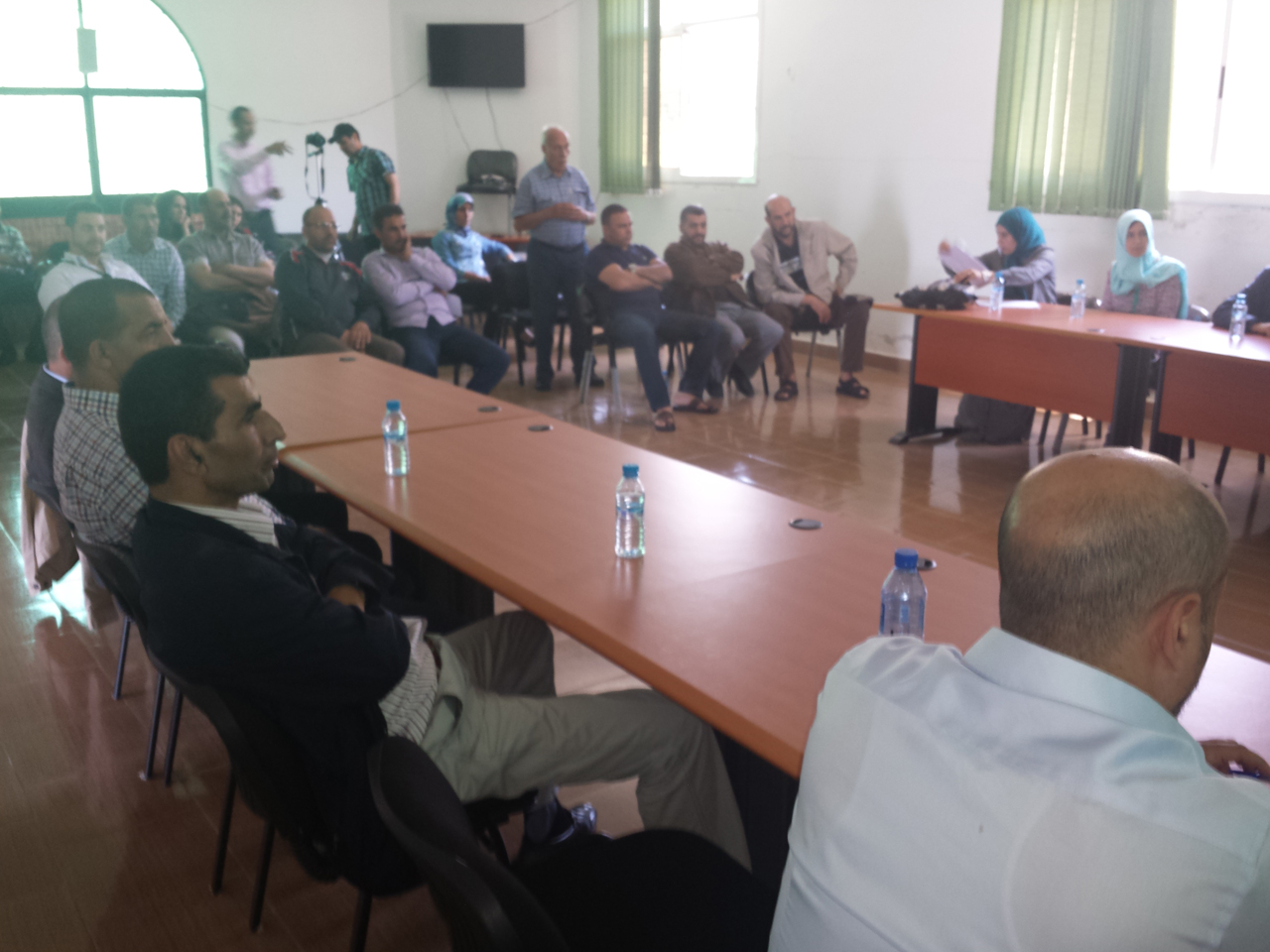

From the 6th of the 9th of March 2017 at CRAPC, Center of Scientific and Technical Research in Physical-Chemical Analysis at Bou Ismail in Algeria, APIMED organized an in-depth training on melissopalynology, the science that studies the pollen in the honey or collected by the bees. The mission was realized by Professor Paola Ferrazzi and Dr Monica Vercelli of the Department of Agricultural, Forestry and Food Sciences (DISAFA) of the University of Turin, with the support of the National Association of Professional Beekeepers of Algeria. The training is the follow-up of a previous course that took place at the University of Turin in the month of November 2015 and that implied the technicians and analyst experts coming from all the Mediterranean Area.
The training foresaw some laboratory sessions and a field visit in order to observe the activity of bees on the plants and to collect and classify the latter in order to make the pollen analysis.

A new mission of technical assistance in Palestine is taking place with the organization of the Ministry of Agriculture, APIMED and the Ramallah Beekeepers Cooperative and the coordination of FELCOS Umbria. Andrea Lilli, technical expert of APIMED, is now in Tulkarem at the Training Center of the Ministry of Agriculture for realizing a technical training of 15 days for the beekeepers representing all the beekeeping cooperatives of West Bank. The training focuses on the exchange of best practices and experiences on issues related to the improvement of the management of beehives and fight against the main bee's diseases such as varroa and american foul brood.
The technical mission is co-funded by the Ministry of Agriculture of Palestine and the project "Mediterranean CooBEEration: a network for beekeeping, biodiversity and food security", funded by the European Union.

A technical mission is taking place in the Tanger-Tétouan-Al Hoceima Region in the North of Morocco. The training is realized by Alberto Ciampelli, technical expert and Vice-President of APAU, the beekeepers' association of the Umbria Region which has the Presidency of APIMED. From the 19th till the 24th of February 2017 twenty beekeepers of the Union of Cooperatives and Association of Tétouan, which is among the members of APIMED and is supporting the organization of the technical training, will be formed on issues related to queen bees breading and practical aspects of improvement on the field of biotechniques of fight against bee diseases as brood rearing and oxalic acid.
The mission is organized by APIMED in coordination with FELCOS Umbria and it is part of the activities of the project "Mediterranean CooBEEration: a network for beekeeping, food security and biodiversity", funded by the European Commission.
The next appointment for APIMED will be a technical mission that will take place in Tulkarem in Palestine in the month of March on issues related to the fight against the main bee's diseases.

From the 26th of October to the 7th of November 2016 APIMED realized for the first time a technical mission in Jordan: Alberto Ciampelli, technical expert and Vice-president of APAU, the Association of Beekeeping Producers of Umbria Region that has the Presidency of APIMED, realized a technical training on the issue related to queen rearing, royal jelly production and fight against the main bees' diseases.
The technical training was organized by the member of APIMED the Jordanian Beekeepers Association, and it was funded by USAID.
The VIII Mediterranean Beekeeping Forum will take place in Chefchaouen, Morocco, on the 22nd and the 23th of November 2016. The Forum is organized by FELCOS Umbria and APIMED - Mediterranean Beekeepers Federation, with the support of the Municipality of Chefchaouen, UNDP and FIMAP – Moroccan Interprofessional Federation of Beekeepers.
After Foligno and Tunisi, the Forum of Chefchaouen will be the last realized in the framework of the european project "Mediterranean CooBEEration: a network for beekeeping, food security and biodiversity" and it will represent the opportunity to elaborate new strategies to continue the cooperation work for the development of the mediterranean beekeeping.
The partners of the "Mediterranean CooBEEration" project are FELCOS Umbria (Fund of Local Authorities for Decentralized Cooperation and Human Sustainable Development), APIMED (Federation of Mediterranean Beekeepers, UNDP (United Nations Development Program), DIPSA (Department of Agro-environmental Sciences and Technologies of University of Bologna), DISAFA (Department of Agricultural, Forest and Food Science of University of Turin) and INAT (National Agronomic Institute of Tunisia).

The 4th, 5th and 6th of October 2016: these are historical days for beekeeping in Algeria and in all the Mediterranean area: for the first time in the history of the Country more than 150 beekeepers and researchers of Universities and public laboratories and research centers, have participated in a technical training organized by APIMED, ANAP and FELCOS Umbria, and realized by Mr Vincenzo Panettieri, President of APIMED. The technical training was focused on the quality system of the production of honeys, the importance of associationism and the organization of the beekeeping sector in order to improve the quality of the productions and the HACCP system.
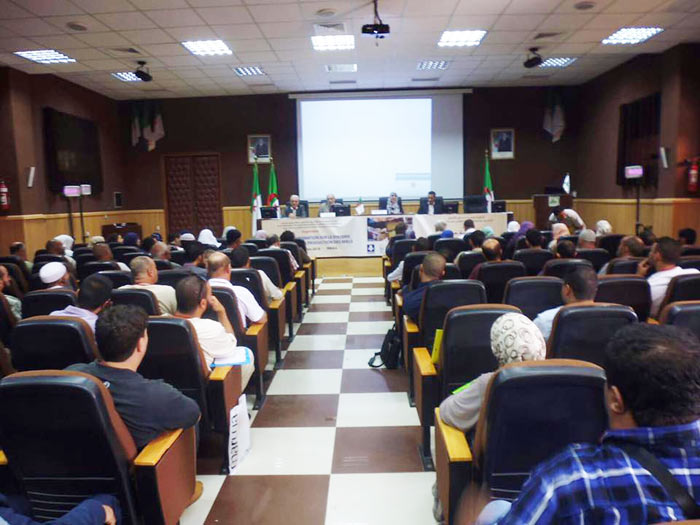
A new technical mission of APIMED is now being realized in Tunisia. More than 120 beekeepers and researchers coming from the most marginalized rural zones of the Country will participated in the 3 days of training that will be focused on the quality system of the production of honeys, the fight against the main bees' diseases and the importance of associationism and the organization of the beekeeping sector in order to improve the quality of the productions.
This technical training, funded by the European Union, is realized by Mr Vincenzo Panettieri, President of APIMED, and it is organized by APIMED, FELCOS Umbria, INAT and UTAP which also offered his headquarter for the realization of the mission.
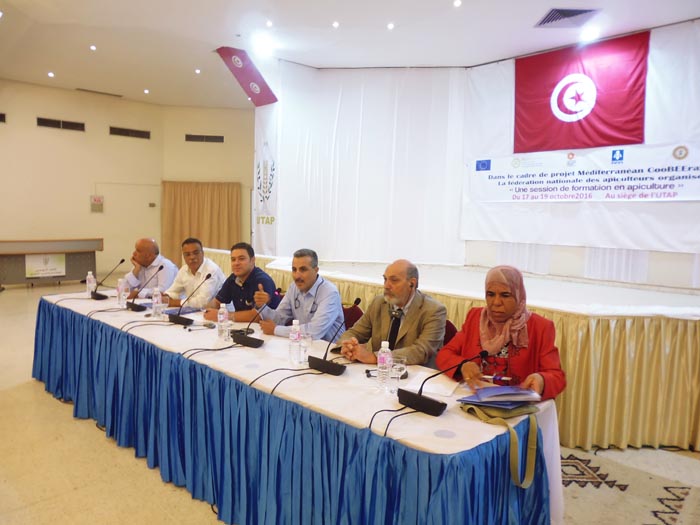
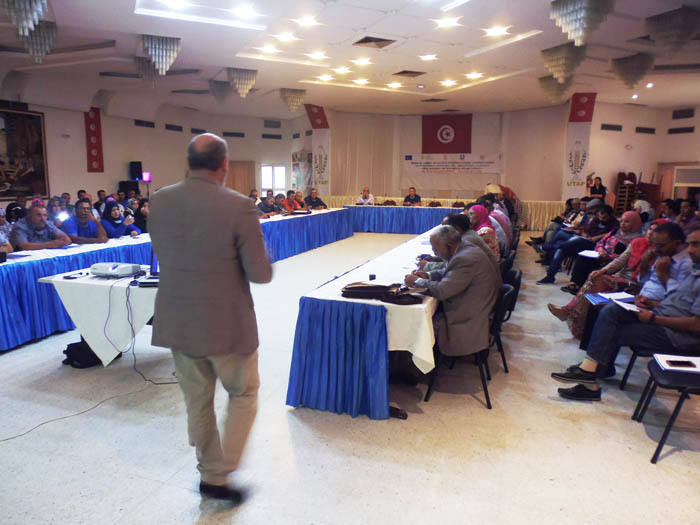
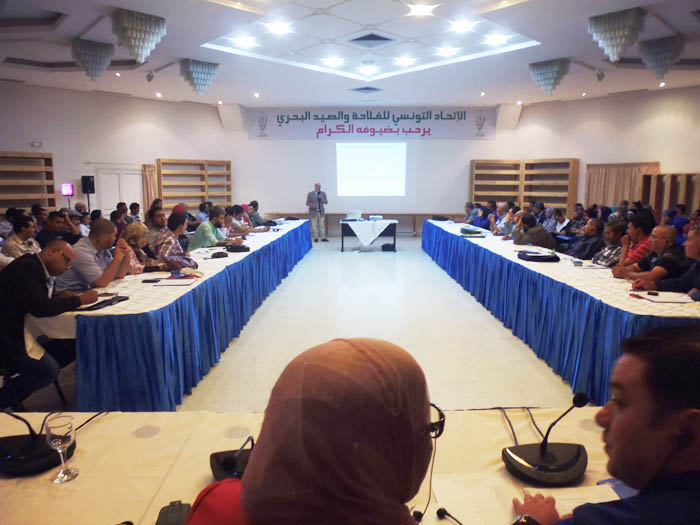
On the 21st of June 2016 the Federal council of APIMED – Mediterranean Beekeepers Federation – officially accepted the joining request presented by UNAF – National Union of French Beekeeping. With the joining of the historical French national union, APIMED currently counts 24 members, among which there are cooperatives, territorial associations and public entities of the following 11 Mediterranean and neighboring countries: Italy, Morocco, France, Tunisia, Algeria, Lebanon, Albania, Palestine, Iraq, Jordan and Egypt.
It is a very important result, which goes beyond the numbers: after Italy and Albania, France is the third country of the North side of the Mediterranean that joins the Federation and can contribute to that advocacy activity that is currently underway through the CooBEEration project and awareness campaign (www.coobeerationcampaign.org/en) with the aim of increasing the attention of the European institutions towards the main problems and development opportunities of the Mediterranean area. It is a strategic action that will be certainly facilitated by the importance of French beekeeping (the data are available on APIMED's website at this link: www.fedapimed.com/members_france.html) which represents a key reference point for all the Mediterranean and neighboring countries due to its tradition and innovation.
These are the main activities and mission of UNAF:
• To defend the economic interests of the value chain;
• To protect the bees;
• To aware the collectivity on the relevant role of the bee;
• To gather and represent the beekeepers;
• To promote the beekeeping products and their quality.

25TH-26TH OF MAY 2016
The National Beekeeping Forum of Palestine will take place in Ramallah at the headquarters of the Red Crescent Society on the 25th and the 26th May 2016. The title of the Forum is "Good practices for beekeeping and food security".
The Forum is organized by APIMED - Mediterranean Beekeepers Federation - and FELCOS Umbria, with the support of the local organization Ramallah Beekeepers Cooperative.
The Forum is listed within the activities of the project "Mediterranean CooBEEration: a network for beekeeping, food security and biodiversity" rif. DCI-FOOD/2013/322-438 financed by the European Union. The project partners are FELCOS Umbria (Fund of Local Authorities for Decentralized Cooperation and Human Sustainable Development), APIMED (Federation of Mediterranean Beekeepers, UNDP (United Nations Development Program), DIPSA (Department of Agro-environmental Sciences and Technologies of University of Bologna), DISAFA (Department of Agricultural, Forest and Food Science of University of Turin) and INAT (National Agronomic Institute of Tunisia).

The second mission of technical assistance in Palestine is taking place in the framework of the "Mediterranean CooBEEration" project. Alberto Ciampelli, technical expert and Vice-President of APAU, the association of beekeepers of Umbria that has the presidency of APIMED - Mediterranean Beekeepers Federation, is now in Tulkarem for realizing a technical training of 15 days for 20 beekeepers that represent the 5 beekeeping cooperatives of West Bank. The training focuses on the queen bees breeding, an issue that was strongly requested by the Palestinian beekeepers, and which is effectively really important for the objective of improving the productions and strength the beekeeping sector. A specific part of the training will be focused on practical aspects of improvement on the field of biotechniques of fight against bee diseases as brood rearing and oxalic acid. These are techniques that foresee just a minimum use of chemical treatments and are even allowed by organic beekeeping, aiming at ensuring bee health, environmental protection and the healthiness and quality of honey.
The mission will go on until the 4th of March and it was organized by APIMED in coordination with FELCOS Umbria and with the support of the Ministry of Agriculture which made available the training center of Tulkarem where the training sessions are taking place.
The Ramallah Beekeepers Cooperative, that is among the Federation's founders and is "focal point" for APIMED in Palestine, was in charge of the actions of awareness and information amid the beekeepers and other local organizations.
The next event for APIMED in Palestine will be the National Beekeeping Forum that will take place at the beginning of the summer.

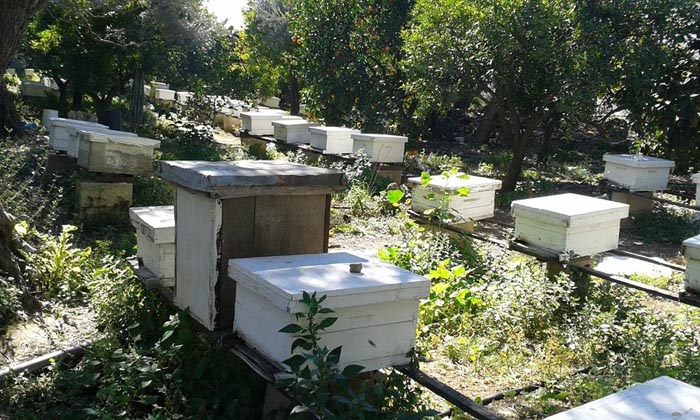

The National Beekeeping Forum of Algeria will take place in Alger at the National Chamber of Agriculture on the 27th and 28th of January 2016. The title of the Forum is "The bee as universal strategic resource for local development, biodiversity and food security".
The Forum is organized by APIMED - Mediterranean Beekeepers Federation - and FELCOS Umbria, with the support of the local organization National Professional Beekeepers Association of Algeria - ANAP.
The Forum is listed within the activities of the project "Mediterranean CooBEEration: a network for beekeeping, food security and biodiversity" rif. DCI-FOOD/2013/322-438 financed by the European Union. The project partners are FELCOS Umbria (Fund of Local Authorities for Decentralized Cooperation and Human Sustainable Development), APIMED (Federation of Mediterranean Beekeepers, UNDP (United Nations Development Program), DIPSA (Department of Agro-environmental Sciences and Technologies of University of Bologna), DISAFA (Department of Agricultural, Forest and Food Science of University of Turin) and INAT (National Agronomic Institute of Tunisia).
The first mission of technical assistance in Morocco of the project "Mediterranean CooBEEration: a network for beekeeping, biodiversity and food security." is taking place in Rabat from the 3rd to the 8th of January 2016. APIMED organized this mission in cooperation with FELCOS Umbria, and they benefited from the support of the local focal point associated with APIMED, the Interprofessional Federation of the Moroccan Beekeeping (FIMAP).
The mission is realized by Massimo Carpinteri – APIMED's expert and vice-President – and it focuses on the genetic selection and the possible methods of intervention for the identification and valorization of the Sahariensis bee species (Apis Ligustica Sahariensis).
The technical training is taking place at the siege of FIMAP in Rabat, and it involves 20 beekeepers and queen bees' breeders coming from all over the Country.
The first mission of technical assistance to Morocco is listed within the activities of the project "Mediterranean CooBEEration: a network for beekeeping, food security and biodiversity" rif. DCI-FOOD/2013/322-438 financed by the European Union. The project partners are FELCOS Umbria (Fund of Local Authorities for Decentralized Cooperation and Human Sustainable Development), APIMED (Federation of Mediterranean Beekeepers, UNDP (United Nations Development Program), DIPSA (Department of Agro-environmental Sciences and Technologies of University of Bologna), DISAFA (Department of Agricultural, Forest and Food Science of University of Turin) and INAT (National Agronomic Institute of Tunisia)
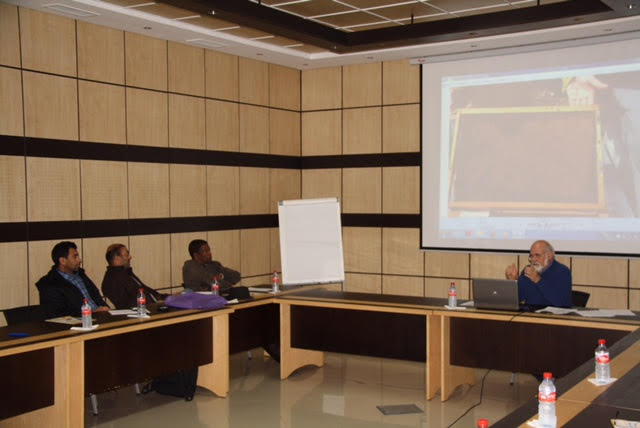
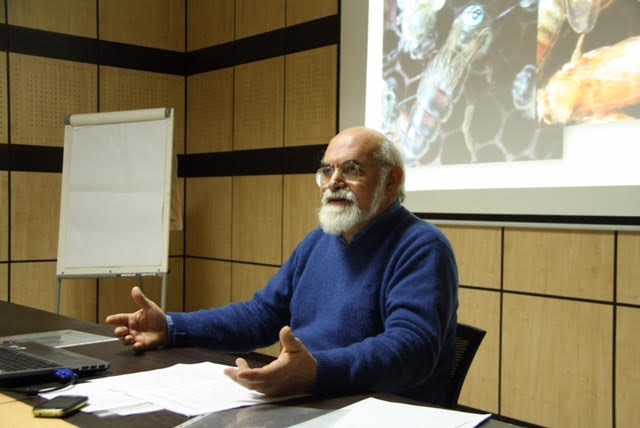
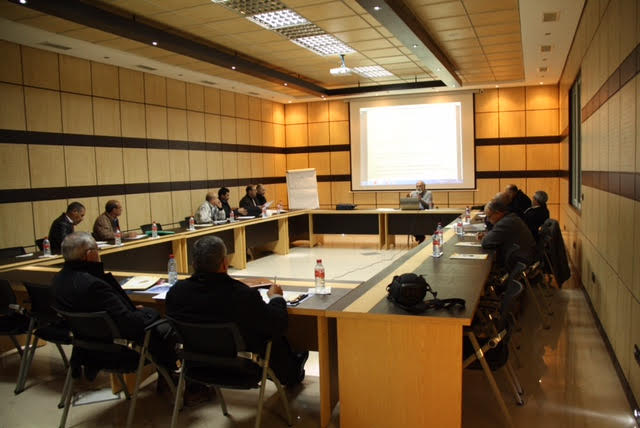
From the 17th to the 22th of November 2015 took place the second mission of technical assistance in Algeria, included within the activities of the project "Mediterranean CooBEEration: a network for beekeeping, biodiversity and food security." APIMED organized the mission in cooperation with FELCOS Umbria, and they benefited from the support of the local focal point associated with APIMED, the Association for the Development of Beekeeping of Mitidja Wilaya of Blida (ADAMB).
During the mission, Massimo Carpinteri – APIMED's expert and vice-President – realized a technical training on the topics of honey analysis, selection plan and breeding of queen bees. The training took place at the Center of Scientific and Technical Research on the Physical-chemical Analysis (CRAPC) of Bou Ismail, and involved 40 beneficiaries with the following backgrounds: analysis experts, researchers, beekeepers, veterinarians and queen bees' breeder coming from all over the Country.
An important meeting also took place at the Ministry of Agriculture with the aim of discussing the organization of the National Beekeeping Forum of Algeria. During the meeting, the Ministry confirmed his support to APIMED for the organization of this national event that will take place in January 2016.
The second mission of technical assistance to Algeria is listed within the activities of the project "Mediterranean CooBEEration: a network for beekeeping, food security and biodiversity" rif. DCI-FOOD/2013/322-438 financed by the European Union. The project partners are FELCOS Umbria (Fund of Local Authorities for Decentralized Cooperation and Human Sustainable Development), APIMED (Federation of Mediterranean Beekeepers, UNDP (United Nations Development Program), DIPSA (Department of Agro-environmental Sciences and Technologies of University of Bologna), DISAFA (Department of Agricultural, Forest and Food Science of University of Turin) and INAT (National Agronomic Institute of Tunisia).
APIMED and FELCOS Umbria, with support from the Department of Agriculture, Forestry and Food Science of the Turin University DISAFA), are organising an introductory course to pollen analysis which will take place from 9 to 13 November 2015 at Turin University.
This is part of the activities included in Axis 2 "Research, analysis and networking" of the European project "Mediterranean CooBEEration: a network for beekeeping, food safety and biodiversity"; it will involve organizing an introductory course to melissopalynology (the scientific discipline which studies the pollen found in honey).
Two technicians or expert analysts from research centres and laboratories from each of the project's partner countries (Lebanon, Palestine, Tunisia, Algeria and Morocco) will be invited to take part in the course as beneficiaries of the action.

It is a very important initiative from a strategic perspective and in order to pursue the more general goal of creating and disseminating common knowledge as regards Mediterranean beekeeping, by sharing information and experiences, as well as contributing to unified data collection and analysis systems.
It is worth mentioning that the partners of the "Mediterranean CooBEEration" project, co-funded by the European Commission, are FELCOS Umbria (Local Authorities Fund for Decentralized Cooperation and Sustainable Human Development), APIMED (the Federation of Mediterranean Beekeepers), UNDP (the United Nations Development Programme), DIPSA (University of Bologna Department of Agro-Environmental Science and Technology), DISAFA (University of Turin Department of Agricultural, Forestry and Food Sciences), and INAT (the Tunisian National Agronomy Institute).
From the 23rd to the 27th of August 2015 took place the second mission of technical assistance in Palestine, included within the activities of the project "Mediterranean CooBEEration: a network for beekeeping, biodiversity and food security." APIMED organized the mission in cooperation with FELCOS Umbria, and they benefited from the support of the local focal point associated with APIMED, the Ramallah Beekeepers Cooperative.
During the mission, Francesco Ruini – APIMED's expert – trained local beekeepers on the topics of hives management and the fight against the main bees diseases. The training took place in Tulkarem in the West Bank, at the Centre for Training of the Ministry of Agriculture; twenty-seven beneficiaries took part to the training: beekeepers, technicians and representative of the main beekeepers cooperative of the West Bank, males and females of different ages. The beneficiaries of the technical training showed a deep interest and actively participated to the apiaries and class sessions, where the trainer showed various slides and technical presentation.

During the mission the participants to the technical training received individual questionnaires to be filled that were related with the collection of data of the Observatory of Mediterranean Beekeeping. Moreover, it took place also a meeting between APIMED's expert and the Ramallah Beekeepers Cooperative about the group on the quality of Mediterranean honey, to which the Palestinians adhered with great enthusiasm, proposing also a specific proposal for the work to be done with the group.
The second mission of technical assistance to Palestine is listed within the activities of the project "Mediterranean CooBEEration: a network for beekeeping, food security and biodiversity" rif. DCI-FOOD/2013/322-438 financed by the European Union. The project partners are FELCOS Umbria (Fund of Local Authorities for Decentralized Cooperation and Human Sustainable Development), APIMED (Federation of Mediterranean Beekeepers, UNDP (United Nations Development Program), DIPSA (Department of Agro-environmental Sciences and Technologies of University of Bologna), DISAFA (Department of Agricultural, Forest and Food Science of University of Turin) and INAT (National Agronomic Institute of Tunisia).
Our members from Lebanon and Iraq recommended us to read some articles about the damages that neonicotinoids pesticides cause to bees' health. These pollinators guarantee the reproduction of more than 71 plants that provide 90% of the food of the planet.
The European Union has banned the use of neonicotinoids for 2 years, after the publishing of some scientific researches that have recently demonstrated the correlation between the use of the pesticides and the massive decline of the number of bees in Europe and United States (a decline of more than 50% in the last 25 years). Instead, at the moment does not exist any ban in the United States.
In particular, the first article by Amanda Froelich describes an event occurred in Elmwood (Canada), where the beekeeper Dave Schuit denounced the death of 37 million bees (about 600 bee hives) in his farm, according to him caused by the use of neonicotinoids in the OGM corn fields of the surrounding area: GO TO THE ARTICLE

Damian Carrington, instead, published the second article in The Guardian: GO TO THE ARTICLE The article is about the decision of the British government to suspend the ban in the use of two specific types of neonicotinoids for 120 days. The decision aroused a big debate in the civil society, and the association 38 Degrees promoted a petition, named "Keep the ban on bee-killing pesticides, " that has been signed in few days by more than 500.000 people: GO TO THE ARTICLE
The global challenges that food producers and products have been facing in the last decades make even more meaningful the enhancement of value on the market of those competitive advantages related to the belonging of producers and products to the Mediterranean area.
APIMED since its foundation in 2011 foresaw this possibility for beekeeping, as Federation associating beekeepers and associations of beekeepers coming from countries of the Mediterranean area and neighbors of it. The mission of the Federation have been focused since the beginning on the interests of Mediterranean beekeepers and beekeeping, with the assumption that those categories refer to beekeepers and beekeeping sharing in common some strong characteristics but also very different in terms of rules, traditions and levels of development.
How to investigate and synthetize advantageously the richness of differences between the members has been for long the object of broad discussion in the Federation. In 2014 APIMED participating into the project "Mediterranean CooBEEration" got the tool ad hoc to start the investigation, in fact in the lists of the project activities there was also the constitution of an Observatory on Mediterranean beekeeping.
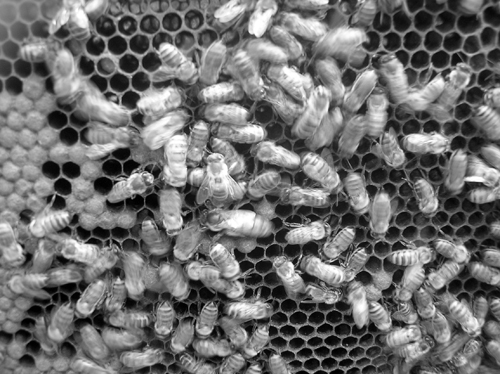
The collection of data, that the Observatory will conduct, will have the scope to reach a better understanding of the sector, and on the other hand it won't question the different qualitative and quantitative levels that beekeeping of different member countries register.
The Observatory will adopt a point of observation related to the geographical area in which it is located and not to the single countries, which already have national observatories. The objective that the collection of data wants to achieve initially will be to align the beekeepers of each country to two common values connotative of the Federation: the methods and the processes of production have to enhance the value of the local products that are natural and traditional; the common development of technical, scientific, cultural and also professional tools can constitute a protection of the quality of Mediterranean products against other types of productions that follow different rules and traditions.
The construction of a descriptive framework becomes the prerequisite for the possible proposal of common actions, and these days the federation is moving the first steps in this direction. The first tool picked for gathering the data of the observatory is a questionnaire, translated into four different languages (French, English, Arabic and Italian), that involves directly beekeepers, organizations or institutions of intermediate level, universities, and technicians related to beekeeping, and researchers of all the countries members. The answers and their processing will provide for the first contribute to the creation of a framework of data for future activities.
The Observatory – as the project "Mediterranean CooBEEration" – acquire also the wider role of contributing to the support of biodiversity and quality of food of our planet, that are strictly connected to the promotion and the support of beekeeping and beekeepers. In the last decades the growing of intensive agriculture at a global level brought to an increasing use of pesticides, reduction of genetic variety of the cultivated species, and the degradation of natural habitats. But many types of fruit, legumes, vegetables and crops depend on pollination, and bees represent the group of pollinators that is predominant and economically more important for many geographical areas. The pollination – and the support to bees that perform it – is therefore vital to maintain ecosystems and their biodiversity, and for the production of food for the entire world.
The Observatory, finally, will provide for some useful information also for the better definition of the target and the campaign "CooBEEration, " that will begin in autumn, and that will support the spread of the milestones of the project "Mediterranean CooBEEration. "
The Federation APIMED welcomed with a lot of enthusiasm the request presented by the Mediterranean beekeepers, and constituted internally a working group on the quality of the Mediterranean honey. The working group will be initially formed by networks of associations, cooperatives, national federations, research centers and public institutions coming from the 10 different countries of the Mediterranean and neighboring areas that take part in APIMED: Italy, Morocco, Egypt, Tunisia, Algeria, Lebanon, Albania, Palestine, Iraq and Jordan. In particular, the participants to the working group will focus on the following specific objectives:
• Definition of Mediterranean honey;
• Identification of its quality parameters;
• Definition of the functional meaning of such parameters;
• Quantification of the values (minimum and maximum) that such parameters should present.
A common definition of the Mediterranean honey will favor the beekeepers in achieving a series of strategic results, either in terms of enhancing the value of the local production in the domestic and international markets, either for opposing the import of honey of very bad quality into the Mediterranean area. We are talking about a strategy that is in line with the original objectives of the Federation, that has always cared for the protection of the local varieties and the development of methods of production that guarantee the healthiness of honey.
The work on the quality of honey will contribute, moreover, to enhance the value of beekeeping not only as a productive activity that generates income and wealth, but also as an activity able to safeguard the biodiversity and improve the food safety, in other words a sufficient and healthy food supply for the inhabitants of the Earth.
There is still a lot to do in terms of information and awareness, in order to orientate the citizens toward a more careful and conscious consumption of the local bees products of high quality. To this regard, the work on the quality of the Mediterranean honey can be perfectly inscribed into the goal of raising of the level of information and awareness launched from the "CooBEEration" campaign, that aims at promoting bees and beekeeping as "Global Common Good", capable to positively influence the environmental, agricultural, social and economic level for the territories, the ecosystems and the human well-being in general.
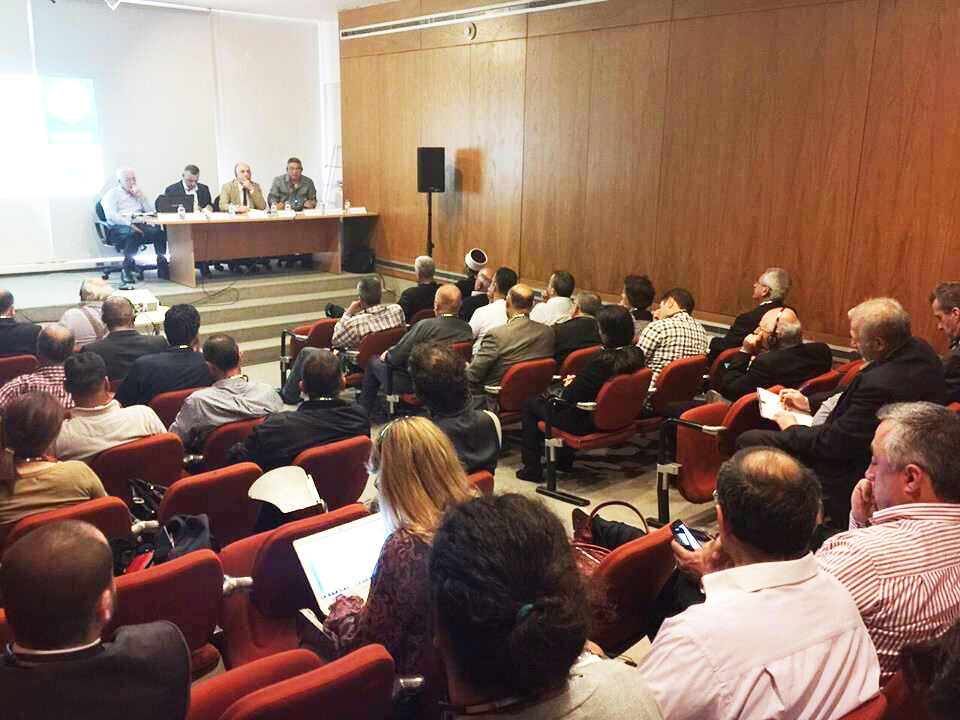


During the last General Assembly of APIMED – The Mediterranean Beekeepers Federation – that took place on the 30th of June 2015, the members ratified the acceptance by the Federal Council of the four new associations, which had completed all the formal procedure required to join APIMED. Our new members are: the Jordan Beekeepers Association - President Mr. Mohammad Alrababah, the Beekeepers Association of Najaf - President Mr. Muntasser S. Mahdi AlHissnawi, the Iraqi Beekeepers Association - President Mr. Qasim Mudhaffer, and the Association of Apiculture of El-Gharbiya - President Mr. Ibrahim Mady.
This important result is part of a larger process of expansion and strengthening of APIMED in the Mediterranean and neighboring areas. It is particularly important, in fact, for the Federation to reach the objective of increasing its representativeness, to become an interlocutor more and more relevant with international organizations such as FAO, UNEP and UNDP, and with institutions of any level.
With the new four memberships, APIMED counts at the moment 21 members, among which there are cooperatives, associations of producers, national federations and public research institutions, coming from 10 different countries of the Mediterranean and neighboring areas: Italy, Morocco, Egypt, Tunisia, Algeria, Lebanon, Albania, Palestine, Iraq and Jordan.
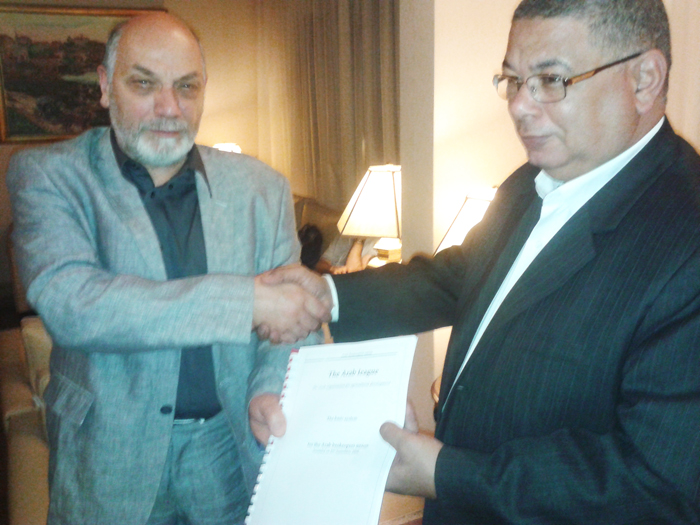
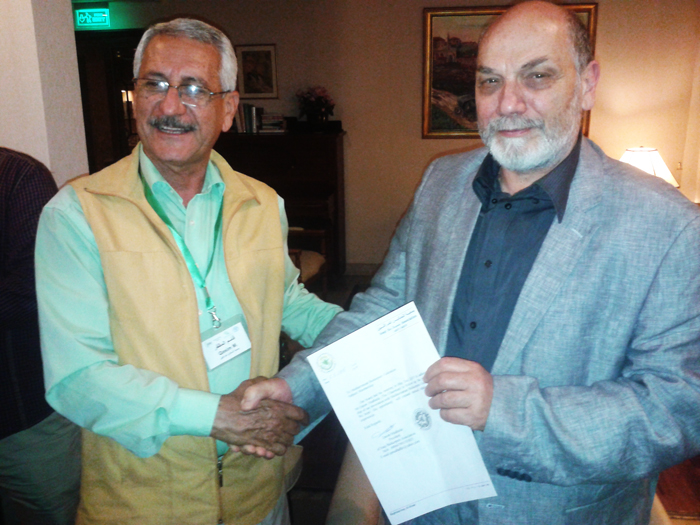
Which role does the bees' pollination play in maintaining the equilibrium of our ecosystems? And up to which level agriculture productions will be influenced by the decline of bees? Upon which type of observations are based the data of the published researches? These are the main topics debated in some articles recently published on the topics of the decline of the bees, the factors that concur to determine the decline, the actual or potential effects that such decline could cause, and, finally, the possible solutions to adopt to invert the process of decline. The researchers involved in the project "Mediterranean CooBEEration" recommended us reading the following articles.
http://www.sciencemag.org/content/347/6229/1432.11.full.pdf?sid=77b6cc27-da6e-40d8-bcd4-0d72b8fae066
http://www.sciencemag.org/content/347/6229/1255957.abstract
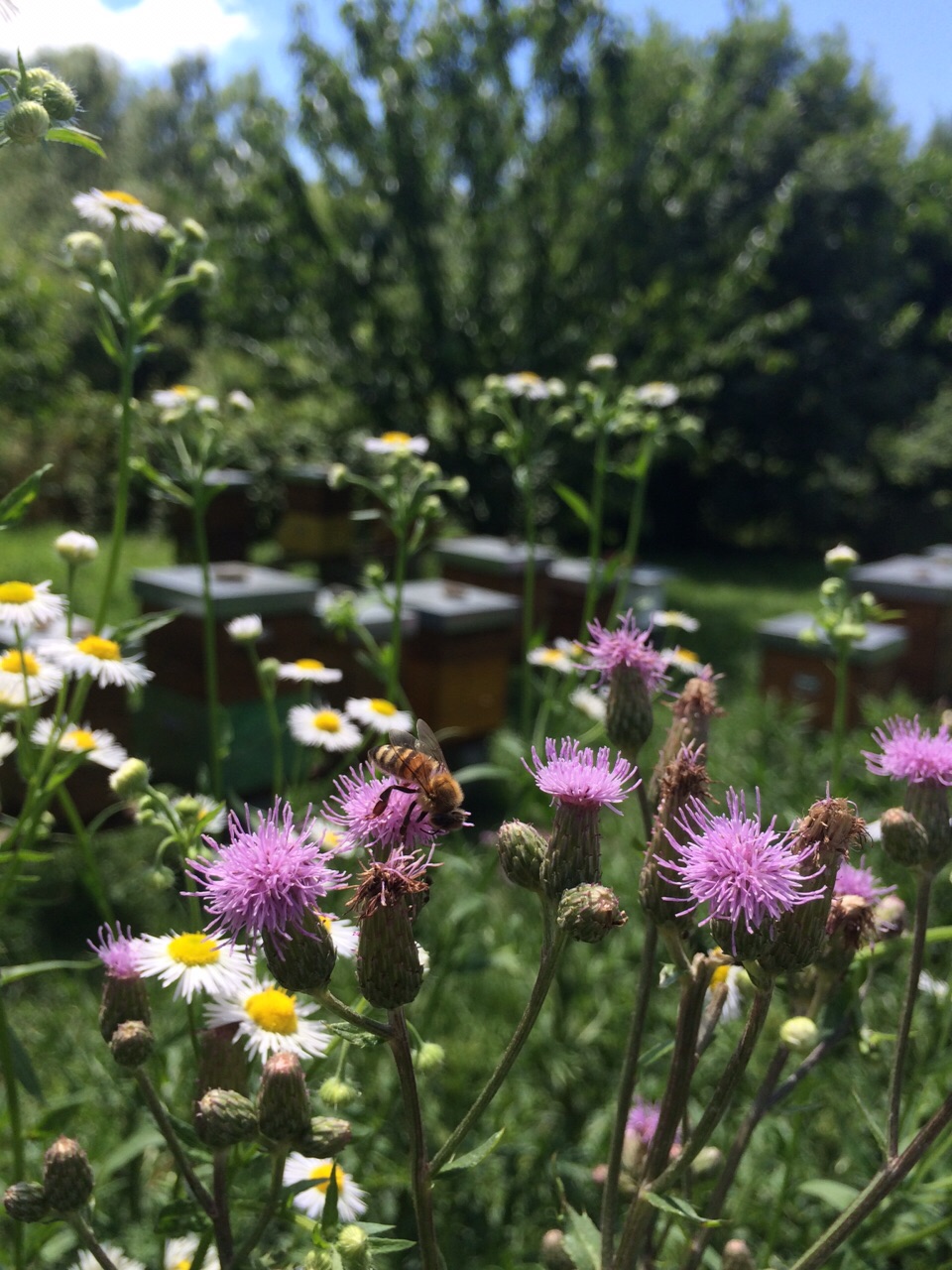
From the 10th to the 13th of June it was organized a technical-scientific mission in Tunisia as one of of the activities of the project "Mediterranean CooBEEration: a network for beekeeping, biodiversity and food security," financed by the European Union in the program "Food Security" and of which APIMED is a partner.
One of the strategic lines of the project, in fact, involves the realization of a scientific research that will be carried out at the same time in Italy and in Tunisia, and that aims at studying and demonstrating by experimental evidence the role played by bees and beekeeping in favoring the reproduction of spontaneous vegetation in degraded areas, particularly exposed to reduction of their biodiversity (burnt areas in Italy and areas exposed to desertification in Tunisia). This type of research has not been carried out in the past: even though, in fact, it is well known that bees play an important role for the reproduction and the improvement of more than 80% of our agricultural crops, since today there have not been scientific data that would prove the essential role that bees play in the conservation of the environment and in the preservation of the biodiversity of many spontaneous species of plants.
The Department of Agricultural Science (DIPSA) of the University of Bologna, the Department of Agricultural, Forest and Food Sciences (DISAFA) of the University of Torino and the National Agricultural Institute of Tunisia (INAT) are collaborating in the realization of this research.
Monica Vercelli, researcher for the DISAFA, took a research trip to Tunisia with the specific objective of realizing a series of inspections in the experimental areas of the research, the region subject to desertification of Goubellat. In Tunisia as well, the research seems to have reached the implementation phase, with the botanical and entomologic surveys that proceed at a steady pace and in harmony with the Italian protocol of research.


APIMED has just realized the final recommendations related to the Forum "Development Strategies for Lebanese and Mediterranean Beekeeping." The Forum took place in Lebanon May 5th-6th 2015, and it was organized by FELCOS Umbria, APIMED-Mediterranean Beekeepers Federation and UNDP, in collaboration with the Ministry of Agriculture of Lebanon and with the financial support of the European Commission. The Forum constitutes one of the strategic actions included in the project "Mediterranean CooBEEration. A network for beekeeping, biodiversity and food security," financed by the European Commission for three years.
The recommendations represent the final document of the Forum, and they originate from the intense debate that happened during the two days of presentations and working tables of Beirut. About 180 participants – representative of beekeeping associations, important representative of the main international organizations, researchers and representatives of the scientific and academic world – took part to the event, and nine different countries of the Mediterranean Area were represented (Lebanon, Italy, Morocco, Tunisia, Algeria, Syria, Jordan, Iraq and Egypt).
The Mediterranean Beekeeping Forum are becoming more and more as an indispensable moment for the discussion and exchange of information in the beekeeping sector, and also as a reference point in the Region for the debate about political choices on beekeeping and its development. The final recommendations sum up and highlight the topics that were more discussed during the Forum: the preservation of biodiversity, the preservation of biodiversity of bees in the Mediterranean area, and the quality of honey. The recommendations were in part also focused on the Lebanese situation of beekeeping, pointing out some topics of specific interest such as the protection of the citrus orchards in Lebanon and the health of the bees.
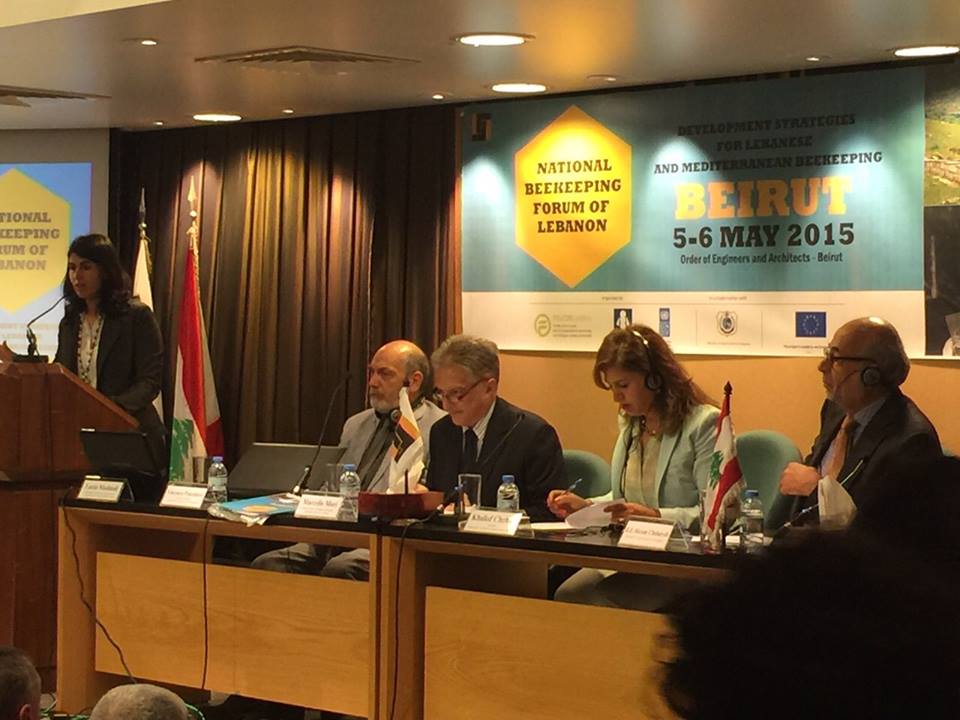
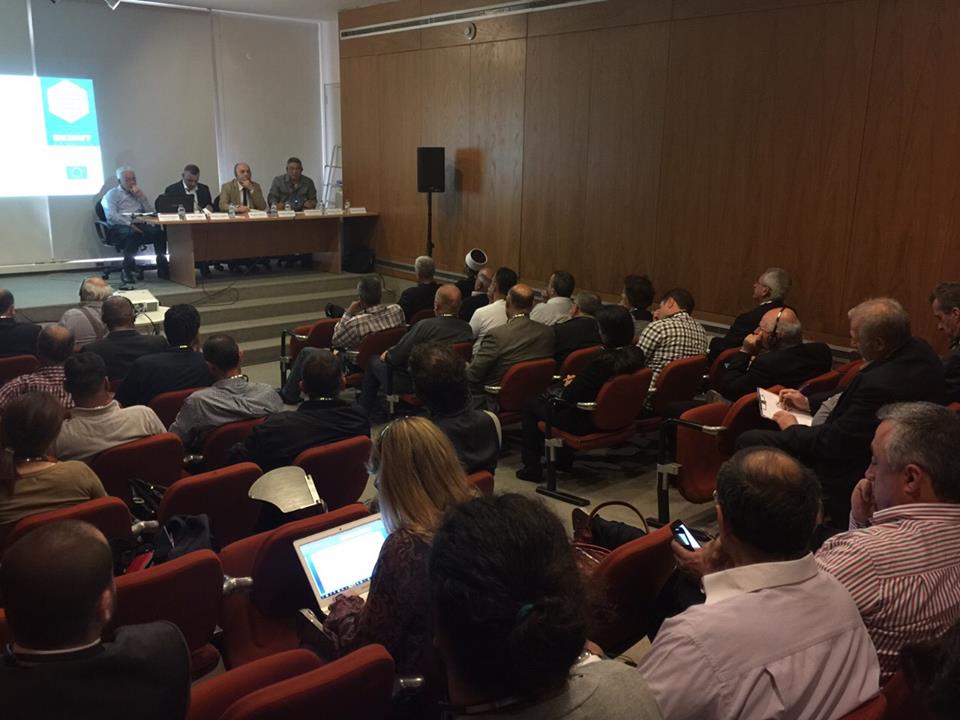
On the occasion of Expo Milano 2015, the Directorate General for Development Cooperation of the Ministry of Foreign Affairs and International Cooperation, in collaboration with the University of Rome "Tor Vergata", organizes on 16th June a scientific meeting devoted to the themes of sustainable beekeeping and the importance of pollinating bees in maintaining agricultural biodiversity.
The day aims to update the debate on these issues and to highlight their central role in relation to environmental risks connected to the loss of bee colonies. To this purpose, the international round table scheduled in the afternoon will see the participation of the Ministry of Agriculture and Forestry and representatives of the counterparts in foreign countries, committed to outline possible guidelines and international policies.
From April 13th to 18th 2015 it will be realized a second mission of technical assistance in Tunisia; the mission is part of the activities of the project "Mediterranean CooBEEration: a network for beekeeping, biodiversity and food security".
The technical experts who will be in charge of the mission - organized in cooperation by APIMED and FELCOS Umbria - are Massimo Carpinteri (APIMED vice-president) and Agata Cierlinska. The subject of the technical training will be the theory and the practice of the use of instrumental insemination in order to obtain a genetic improvement in the selection plan of honeybees. The beekeeping development center of Mraissa will host the training, thanks to a cooperation agreement signed between the Office de l'Elevage et des Paturages of the Ministry of Agriculture of Tunisia and APIMED.
The technical mission will also provide for the opportunity to the APIMED' experts to inspect the Region of Goubellat, where it is located the experimental area selected for the scientific research related to the project "Mediterranea CooBEEration," and lead in cooperation by the Department of Agrarian Sciences of University of Bologna and by INAT (the National Agrarian Institute of Tunisia). This scientific research, the first to be realized on the topic, aims at studying and demonstrating - trough experimental evidence - the strategic role that honeybees and beekeeping play in fostering the reproduction of wild plants in areas particularly exposed to biodiversity degradation.

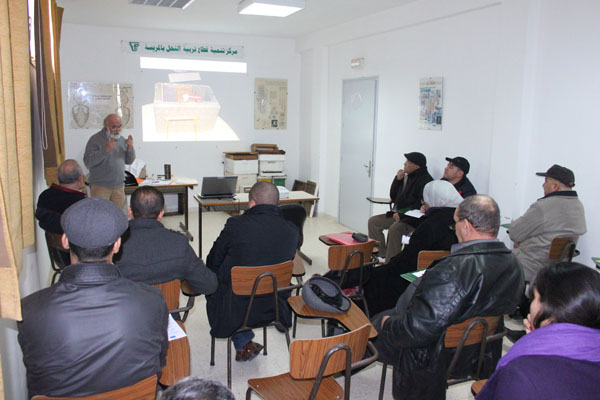
Operating office Felcos Umbria
Introduction of the President Vincenzo Panettieri:
The bee is the protagonist, on an international scale, of an economic fallout in agriculture of about 224 thousand millions euros, as it grants the reproduction of 71 vegetable species which supply 90% of the world population’s feeding. It is a kind of actual “multinational corporation” of agriculture which has got its directional centres in every single nation, every single territory, every single beekeeper; it brings a significant turnover and financial capital, shared out for the complete and free benefit of the whole humanity, without the payment of prebends or interests.
Essential for our feeding, bees are among the most important factors that contribute to the diversity of the ecosystems of the earth, and for this reason they have to be considered as a structural element which safeguards the biodiversity. In fact, thanks to pollination services, bees are one of the most important resources for the macrosystems which are at the base of our existence: natural, economic and social systems. Beekeeping, besides being a productive activity which generates income, protects our survival, varies our food and supports human development as a process of widening the knowledge of different values and traditions.

Vincenzo Panettieri: President of:
FEDAPIMED Mediterranean Beekeepers Association
APAU Umbrians Beekeepers Association,
MBF Mediterranean Beekeeping Forum
The bee is the protagonist, on an international scale, of an economic fallout in agriculture of about 207 thousand millions euros, as it grants the reproduction of 71 vegetable species which supply 90% of the world population's feeding.
Essential for our feeding, bees are among the most important factors that contribute to the diversity of the ecosystems of the earth, and for this reason they have to be considered as a structural element which safeguards the biodiversity.
Thanks to pollination services, bees are one of the most important resources for the macrosystems which are at the base of our existence: natural, economic and social systems.